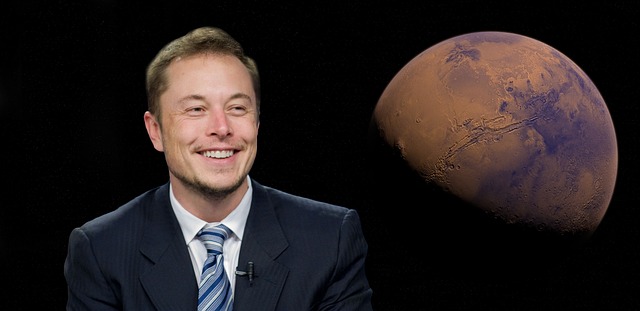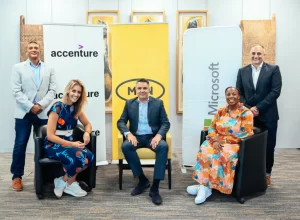OpenAI has responded to claims made by Elon Musk with detailed evidence, explaining the dynamics of their relationship.
The statement released on March 5, 2024, and signed by Greg Brockman, Ilya Sutskever, John Schulman, Sam Altman, and Wojciech Zaremba explained Open AI’s commitment to the organisation’s mission and detailed their interactions with Musk.
Elon Musk, a founding member of the board of OpenAI, played a key role in the organisation’s early years before departing in 2018.

OpenAI said that, “we’re sad that it’s come to this with someone whom we’ve deeply admired—someone who inspired us to aim higher, then told us we would fail, started a competitor, and then sued us when we started making meaningful progress towards OpenAI’s mission without him.”
Elon Musk vs OpenAI: What are the issues?
Last week, Musk filed a lawsuit against OpenAI, alleging that the organisation had deviated from its founding mission and had become a closed-source subsidiary of Microsoft.
Musk’s lawsuit contends that OpenAI’s focus has shifted from developing Artificial General Intelligence (AGI) for the benefit of humanity to refining AGI models to maximise profits for Microsoft, stating, “OpenAI Inc has been transformed into a closed-source, de facto subsidiary of the largest technology company in the world: Microsoft.”
The lawsuit further asserts that, “This case is filed to compel OpenAI to adhere to the founding agreement and return to its mission to develop AGI for the benefit of humanity, not to personally benefit the individual defendants and the largest technology company in the world.”
According to Musk’s legal action, the release of GPT-4 by OpenAI in 2023 marked a turning point, as it allegedly violated the founding agreement by transforming OpenAI into a closed-source entity.
The lawsuit accuses OpenAI’s current leadership, including Sam Altman and Greg Brockman, of disregarding the organization’s original mission and prioritizing personal gain and the interests of Microsoft over the welfare of humanity.
The tumultuous events of November 2023, which saw Altman being sacked as CEO of OpenAI and later reinstated, are cited as evidence of Microsoft’s significant influence over the organisation.
In response to the suit, OpenAI emphasized their pursuit of building safe and beneficial AGI while also striving for broadly distributed benefits. The statement addressed Elon Musk’s involvement in the organization’s funding and strategic decisions.
OpenAI said that, “we’re sad that it’s come to this with someone whom we’ve deeply admired—someone who inspired us to aim higher, then told us we would fail, started a competitor, and then sued us when we started making meaningful progress towards OpenAI’s mission without him.”
According to the released information, Elon Musk initially proposed a significant funding commitment of $1 billion to OpenAI. However, despite Musk’s involvement, the organisation has raised less than $45 million from him, with the majority of funding which is more than $90M coming from other donors.
OpenAI revealed that Musk’s suggestions for a larger initial funding commitment were driven by the need to avoid appearing inadequate compared to tech giants like Google or Facebook.
The statement detailed discussions between OpenAI and Musk regarding the need for vast resources, including compute power, to achieve their AGI goals. They and Musk proposed the creation of a for-profit entity to acquire these resources.
However, according to Open AI, “Elon wanted majority equity, initial board control, and to be CEO. In the middle of these discussions, he withheld funding. Reid Hoffman bridged the gap to cover salaries and operations.”
They further stated that they could not agree to Elon’s demands because, “we felt it was against the mission for any individual to have absolute control over OpenAI.” Elon then suggested that OpenAI should merge with Tesla or attach itself to the company as a “cash cow.”
However, disagreements arose over control and ownership, leading Musk to ultimately depart from OpenAI in late February 2018 stating that their “probability of success was 0,” and that “he planned to build an AGI competitor within Tesla.”
Looking through the emails provided by Open AI, in a correspondence dated November 22, 2015, Musk urged OpenAI to position their funding announcement in a way that would appeal to the general public, emphasizing the importance of garnering public support.
He also stressed the need for a larger funding commitment, stating, “we need to go with a much bigger number than $100M to avoid sounding hopeless relative to what Google or Facebook are spending. I think we should say that we are starting with a $1B funding commitment. This is real. I will cover whatever anyone else doesn’t provide.”
Further emails dated January 2, 2016, revealed discussions between Musk and OpenAI members regarding the risks of open-sourcing AI. While Musk expressed concerns about potential dangers, Ilya Sutskever reassured him, stating, “As we get closer to building AI, it will make sense to start being less open. The Open in openAI means that everyone should benefit from the fruits of AI after its built, but it’s totally OK to not share the science.” Musk concurred with a simple “Yup,” indicating his agreement with Sutskever’s assessment.
In February 1, 2018, correspondence, Musk forwarded an email discussing the potential integration of OpenAI with Tesla as a means to secure funding and resources. The email highlighted Musk’s belief that Tesla was the only entity capable of rivaling Google in the AI space.
This email was sent in response to an earlier correspondence dated January 31, 2018 with the Open AI founders where Elon Musk stated that, “It seems to me that OpenAI today is burning cash and that the funding model cannot reach the scale to seriously compete with Google (an 800B company). If you can’t seriously compete but continue to do research in open, you might in fact be making things worse and helping them out “for free”, because any advances are fairly easy for them to copy and immediately incorporate, at scale.” He further suggested that they (Open AI) attach themselves to Tesla since the technology is compatible with it and “ If we do this really well, the transportation industry is large enough that we could increase Tesla’s market cap to high O(~100K), and use that revenue to fund the AI work at the appropriate scale.”
In correspondence dated December 26, 2018, Musk showed his skepticism (after leaving the group late February) about OpenAI’s ability to compete with giants like Google, stating, “My probability assessment of OpenAI being relevant to DeepMind/Google without a dramatic change in execution and resources is 0%. Not 1%. I wish it were otherwise. Even raising several hundred million won’t be enough. This needs billions per year immediately or forget it.”
Source of Article


